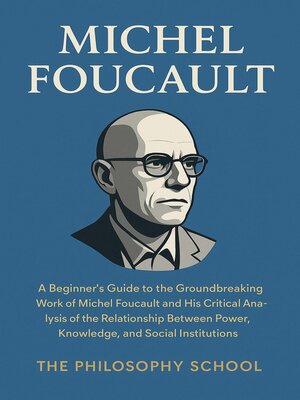Michel Foucault
ebook ∣ A Beginner's Guide to the Groundbreaking Work of Michel Foucault and His Critical Analysis of the Relationship Between Power, Knowledge, and Social Institutions · Western Philosophy
By The Philosophy School

Sign up to save your library
With an OverDrive account, you can save your favorite libraries for at-a-glance information about availability. Find out more about OverDrive accounts.
Find this title in Libby, the library reading app by OverDrive.



Search for a digital library with this title
Title found at these libraries:
| Library Name | Distance |
|---|---|
| Loading... |
Michel Foucault: a name that sends ripples through academia, challenging conventional wisdom and sparking transformative insights into how our world truly operates. His groundbreaking work redefined power, knowledge, and the very institutions that shape our lives.
MICHEL FOUCAULT: A Beginner's Guide invites you to demystify this probing 20th-century thinker. This book serves as your essential toolkit for critical thinking, equipping you with Foucault's powerful concepts and methods to analyze the hidden forces that construct our realities, from our understanding of sanity to the ways we define ourselves.
Inside, you will explore:
This accessible guide encourages you to question assumptions, challenge authority, and critically analyze the world around you, showing how Foucault's work remains an indispensable tool for understanding the hidden operations of power that continue to shape our lives.







